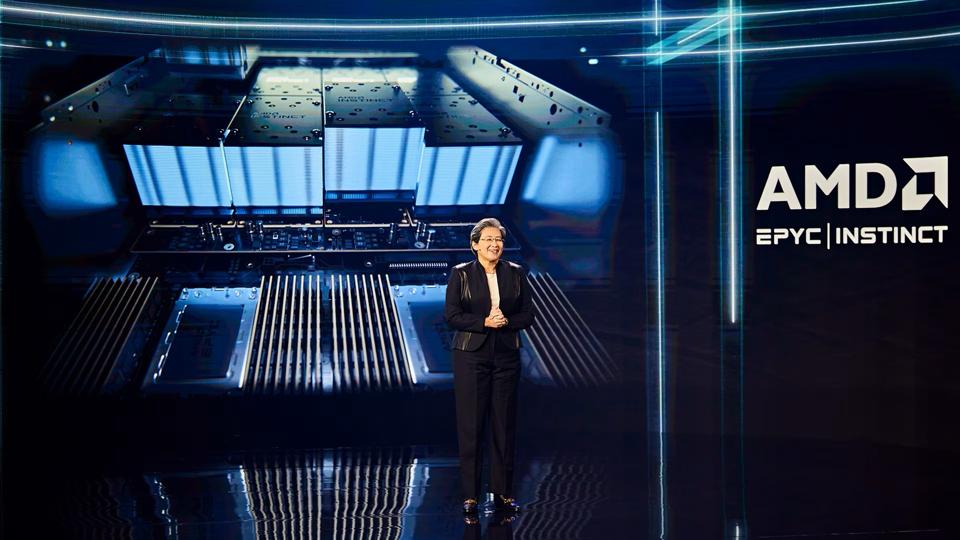AMD just unveiled new EPYC 4005 Series processors, targeting small and medium-sized businesses and hosted IT service providers with price and performance-competitive enterprise servers and workstations. These processors aim to deliver enterprise-class features, performance, and efficiency in an affordable, easy-to-deploy platform.
The new EPYC 4005 Series is built on AMD’s Zen 5 architecture, offering up to 16 cores and 32 threads.
The new CPUs also support up to 192GB of DDR5 5600MHz ECC memory and up to 28 lanes of PCIe Gen 5, for significantly enhanced memory bandwidth while offering ample I/O expansion and throughput. The EPYC 4005 Series utilizes AMD’s AM5 socket, ensuring compatibility with existing infrastructure and simplifying deployment. Combined with a single-socket AM5 platform, the EPYC 4005 Series enables strong performance without the added complexity or cost of dual-socket setups. For enterprise servers and workstations, the market opportunity could be substantial, including virtualized environments, cloud hosting and efficient edge computing applications.
EPYC 4005 Processors Vs Intel Xeon
The EPYC 4005 Series is built on AMD’s latest Zen 5 architecture, bringing up to 16 cores and 32 threads to a more accessible segment of the enterprise market. AMD is positioning these chips as ideal for entry-level server use cases, but make no mistake, there’s real performance under the hood.
AMD cites benchmark results using the open-source Phoronix test suite to demonstrate its advantage. In a geo-mean compilation of all tests in the suite, the 16-core EPYC 4565P delivered 1.83x the performance of Intel’s 8-core Xeon Silver 6369P in multi-threaded workloads. This includes performance-intensive operations like code compilation, data compression, and image processing, the kind of tasks that are common in virtualized and containerized environments.
AMD’s deliberate positioning of the EPYC 4005 Series as a no compromise solution for edge, virtualization, and cloud gateway systems seems to match its performance claims. If real-world usage tracks with AMD’s internal benchmarks, these processors could punch well above their weight class, particularly for enterprises that prioritize performance-per-dollar and deployment simplicity.
AMD EPYC 4005 Partner Ecosystem And Top Take-Aways
AMD has garnered support from a multitude of OEM partners for the EPYC 4005 Series, including Lenovo, Supermicro, and OVHcloud (a bare metal, public, private and enterprise cloud hosting company). These OEMs aim to provide tailored solutions for SMBs, combining AMD’s processors with partner hardware and services.
With the EPYC 4005 Series, AMD is targeting a key gap in the market. Small to mid-sized businesses and hosted IT providers often get overlooked when it comes to enterprise-class silicon, and AMD clearly sees an opportunity. These chips bring serious horsepower—up to 16 of the company’s Zen 5 CPU cores, DDR5-5600, and PCIe 5.0—to a price point and deployment model that’s more approachable than legacy data center offerings.
This move could put real pressure on Intel’s hold over the entry-level server and cloud services market. If AMD’s performance claims hold up across a range of workloads, especially in multi-threaded tasks like virtualization and light cloud hosting, AMD could chip off additional market share versus Intel with OEMs and SMBs alike. And with big-name partners like Lenovo, Supermicro, and OVHcloud already on board, AMD is not going it alone.
Bottom line: EPYC 4005 Series spec sheets may not stand out versus high-end server platforms, but this new AMD CPU family is a smart, strategic play in a fast-growing segment.

